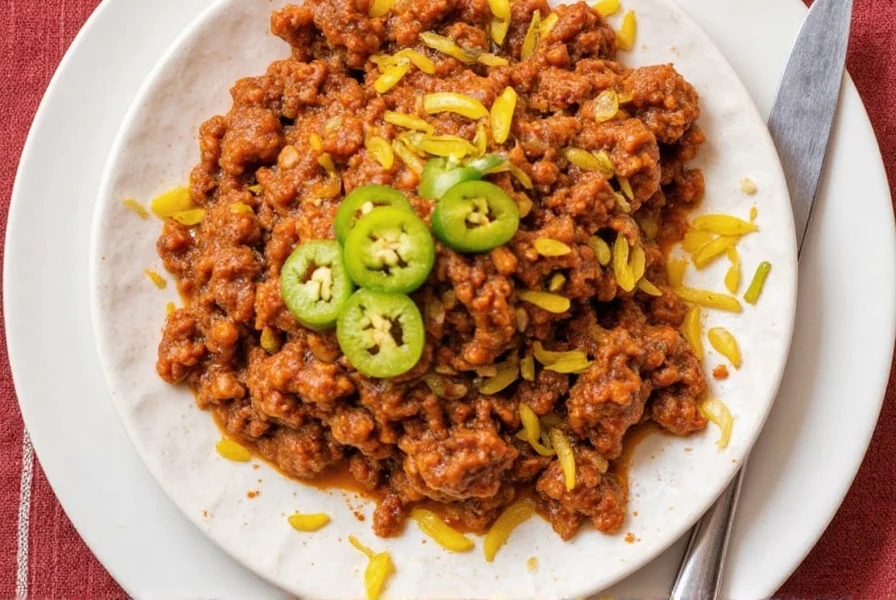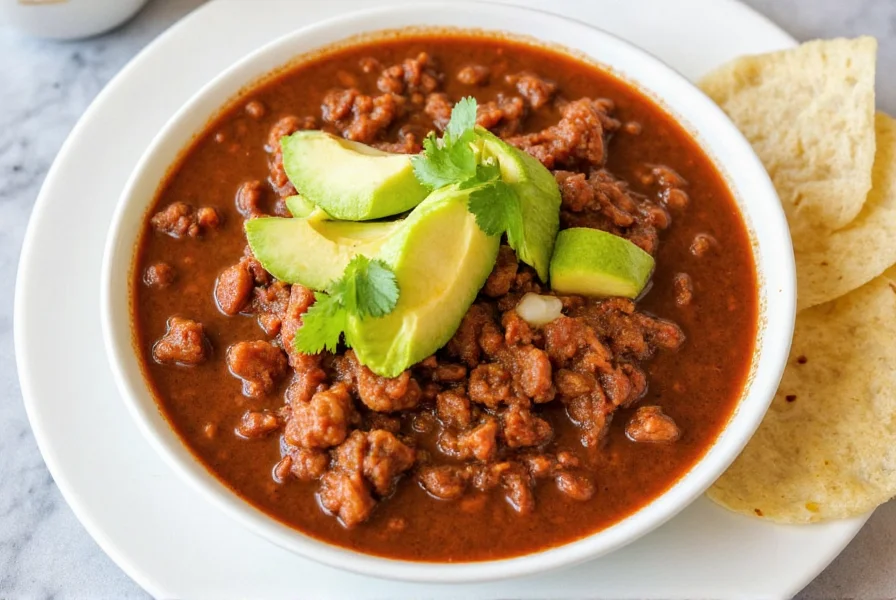Chicken Mole: A Spicy Symphony of Global Flavors You Can't Resist!
Spice lovers and culinary explorers, prepare your taste buds for a flavorful journey around the world! In this article, we dive into one of the most iconic spice-laden dishes—chicken mole. Rich, complex, and packed with cultural depth, mole is more than just a sauce; it's a celebration of tradition, heritage, and heat. Whether you're a seasoned cook or just starting out, our step-by-step guide will help you master this legendary dish right in your own kitchen.
Table of Contents
- What Is Chicken Mole?
- A Flavorful History Behind Mole
- Essential Ingredients for an Authentic Chicken Mole Recipe
- Step-by-Step Chicken Mole Recipe
- Buying Guide: Must-Have Ingredients for Your Mole Kit
- Global Variations of Chicken Mole
- Pros and Cons of Making Chicken Mole at Home
- Frequently Asked Questions (FAQs)
- Conclusion
What Is Chicken Mole?
Mole (pronounced MOH-lay) is a rich, complex sauce originating from Mexico, often served over meats like chicken. While there are dozens of regional variations, all mole sauces share one thing: they’re a harmonious blend of sweet, spicy, smoky, nutty, and earthy flavors. Chicken mole, in particular, is a beloved comfort dish that showcases this depth beautifully.
Why It’s More Than Just a Sauce
Mole isn’t simply about combining ingredients—it’s a labor of love. Some traditional recipes call for up to 30 different components, including dried chilies, spices, nuts, seeds, chocolate, and fruits. The result? A sauce that tells a story through flavor.
A Flavorful History Behind Mole
The origins of mole trace back to pre-Columbian times, where indigenous peoples used local ingredients like cacao, chili peppers, and herbs to create early versions of the sauce. With the arrival of Spanish colonizers, new ingredients such as almonds, cinnamon, and bread were introduced, enriching mole’s flavor profile.
Today, mole holds a special place in Mexican culture, especially during holidays like Día de los Muertos and Christmas. Each family may have its own version, passed down through generations like a cherished heirloom recipe.
Essential Ingredients for an Authentic Chicken Mole Recipe
If you’ve never made mole before, the ingredient list can seem intimidating. But once you understand what each component contributes, you’ll see how every item plays a role in building that unforgettable flavor profile.
Key Ingredients in Chicken Mole:
- Dried Chilies: Ancho, mulato, pasilla, and guajillo are commonly used to provide varying levels of heat and smokiness.
- Spices: Cinnamon, cumin, black pepper, and cloves add warmth and complexity.
- Nuts & Seeds: Almonds, peanuts, sesame seeds, and pumpkin seeds bring nuttiness and body.
- Fruits: Plantains, raisins, or prunes offer natural sweetness to balance the heat.
- Chocolate: Bitter or dark chocolate adds richness and depth without making the sauce sweet.
- Tomatoes & Onions: Provide acidity and a savory backbone.
- Bread: Sometimes included to thicken the sauce naturally.
Ingredient Breakdown Table
| Ingredient | Flavor Contribution | Substitute Option |
|---|---|---|
| Ancho Chili | Earthy, slightly sweet, mild heat | Guajillo chili |
| Almonds | Nutty, creamy texture | Peanuts or cashews |
| Plantains | Natural sweetness, caramel notes | Raisins or dates |
| Dark Chocolate | Deep richness, subtle bitterness | Cocoa powder (add sparingly) |
Step-by-Step Chicken Mole Recipe
Ready to make your own mole at home? Don’t be intimidated—this recipe breaks everything down into manageable steps. Let’s get cooking!
You’ll Need:
- 4 bone-in chicken thighs
- 3 ancho chilies
- 2 guajillo chilies
- 1 small plantain
- 1/4 cup almonds
- 1 tbsp sesame seeds
- 1 medium tomato
- 1 onion
- 2 garlic cloves
- 1 small piece of dark chocolate (70%)
- 1 tsp cinnamon
- 1/2 tsp ground cloves
- Salt to taste
- Oil for frying
Instructions:
- Toast the chilies: Remove stems and seeds. Toast lightly in a dry pan until fragrant but not burnt.
- Soak the chilies: Cover with hot water and let soak for 20–30 minutes until soft.
- Roast the aromatics: Sear the chicken first for flavor, then set aside. Add onion, garlic, tomato, and plantain to the same pan and roast until golden.
- Toast nuts and seeds: Lightly toast almonds and sesame seeds until fragrant.
- Blend everything: Combine soaked chilies, roasted veggies, nuts, spices, and a splash of broth in a blender. Blend until smooth.
- Cook the sauce: Return the sauce to the pot and simmer gently for 20–30 minutes, stirring often. Add small pieces of chocolate and stir until melted.
- Add chicken and finish: Return the chicken to the pot and simmer together for another 15–20 minutes, allowing flavors to meld.

Buying Guide: Must-Have Ingredients for Your Mole Kit
Whether you're buying your ingredients for the first time or restocking your pantry, here's a quick reference guide to help you choose the best quality products for your mole-making adventure.
Top Picks for Mole Essentials
| Product | Description | Best For | Recommended Brand |
|---|---|---|---|
| Ancho Chili Pack | Whole dried ancho chilies, perfect for soaking and blending. | Beginners looking for consistent results | La Costeña |
| Organic Spices Set | Includes cinnamon, clove, cumin, and coriander in reusable tins. | Those who want to try multiple spices at once | Savory Spice Shop |
| Raw Almonds | Unsalted and unroasted, ideal for custom roasting. | Mole recipes requiring a smooth texture | Kalona SuperNatural |
| Dark Chocolate Bar (70% Cocoa) | Smooth, bittersweet chocolate for balanced depth. | Adding richness without sweetness | Lindt Excellence |
Tips for Shopping Smart
- Buy whole dried chilies rather than pre-ground powders—they retain more flavor and aroma.
- Opt for organic or non-GMO spices when possible for cleaner flavor profiles.
- Choose raw nuts so you can control the roasting process at home.
- Use fresh tomatoes and onions for vibrant base layers.
Global Variations of Chicken Mole
While mole is rooted in Mexican cuisine, its influence has spread across borders and evolved into unique styles around the globe. Here are some fascinating international twists on chicken mole:
International Mole Inspirations
- Tex-Mex Mole: Uses fewer ingredients and sometimes includes peanut butter for a shortcut version.
- Peruvian Mole: Features ají amarillo chili and potatoes for a creamier consistency.
- Spanish-Inspired Mole: Incorporates saffron, sherry vinegar, and olives for a Mediterranean flair.
- Asian Fusion Mole: Combines miso, ginger, and sesame oil for an umami-rich twist.
Pros and Cons of Making Chicken Mole at Home
| Pros | Cons |
|---|---|
| Deep, complex flavor profile | Time-consuming to prepare |
| Customizable to your taste preferences | Requires many ingredients |
| Perfect for meal prep or sharing | Some ingredients may be hard to find |
| Impressive centerpiece for gatherings | Can be intimidating for beginners |
Frequently Asked Questions (FAQs)
Can I make mole ahead of time?
Absolutely! In fact, mole often tastes better the next day after the flavors have had time to marry. Store in an airtight container for up to 5 days or freeze for up to 3 months.
Is mole supposed to be spicy?
Mole isn’t traditionally meant to be fiery hot. It’s more about balanced heat and flavor layers. If you prefer it spicier, add more chilies or use hotter varieties like arbol or habanero.
Can I use store-bought mole paste?
Yes! If time is tight, many high-quality mole pastes are available in specialty stores or online. They offer convenience while preserving much of the authentic flavor.
What goes well with mole?
Traditionally, mole is served with rice, warm tortillas, or tamales. It pairs beautifully with avocado, lime crema, or pickled vegetables for a refreshing contrast.
Conclusion
Chicken mole is more than a recipe—it’s a tribute to centuries of cultural fusion, culinary ingenuity, and deep-rooted traditions. Though it requires patience and care, the reward is a deeply satisfying, soul-warming dish that brings people together. Whether you stick to classic Mexican roots or experiment with global influences, mole remains a testament to the power of spice in storytelling and sharing love through food.
So grab your apron, gather your ingredients, and get ready to impress your palate—and your guests—with a homemade chicken mole that’s worthy of any festive table or cozy dinner night.











 浙公网安备
33010002000092号
浙公网安备
33010002000092号 浙B2-20120091-4
浙B2-20120091-4